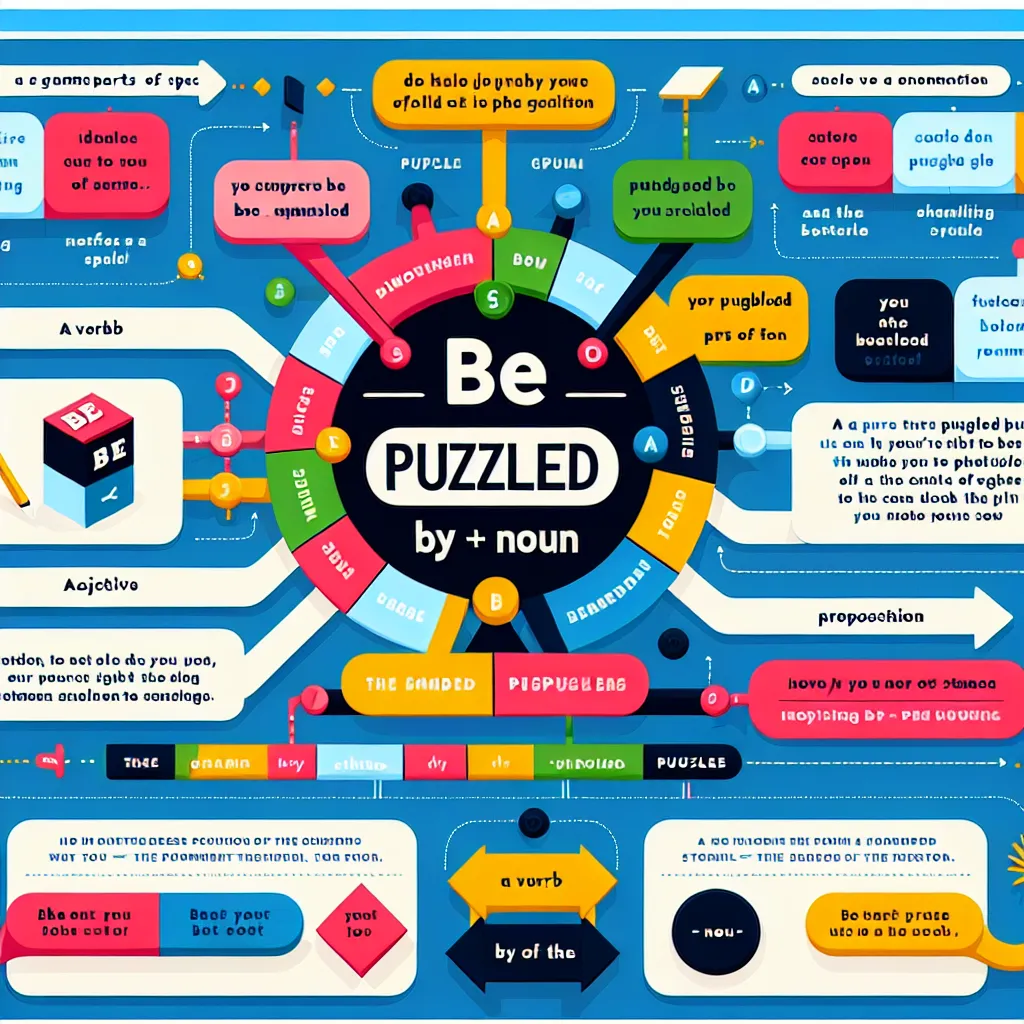Are you preparing for the IELTS exam and looking to enhance your grammar skills? Understanding and effectively using expressions like “be puzzled by + noun” can significantly boost your performance across all sections of the test. This article will delve into the intricacies of this grammatical structure, its usage in IELTS, and provide you with practical examples to improve your language proficiency.
Understanding “Be Puzzled by + Noun”
The expression “be puzzled by + noun” is a common English structure used to express confusion or perplexity about something. It’s a valuable phrase for IELTS candidates to master, as it allows for nuanced expression of thoughts and reactions, particularly in the Speaking and Writing sections of the test.
Grammar Structure
The basic structure is:
[Subject] + [be] + puzzled + by + [noun/noun phrase]
Here, “be” is conjugated according to the subject and tense of the sentence. For example:
- I am puzzled by the question.
- She was puzzled by his behavior.
- They have been puzzled by the results.

Using “Be Puzzled by + Noun” in IELTS Tasks
IELTS Speaking
In the IELTS Speaking test, using “be puzzled by + noun” can help you express your thoughts more precisely and demonstrate a higher level of English proficiency.
Example 1:
Examiner: “Can you describe a situation where you felt confused?”
Candidate: “Certainly. I remember being puzzled by the instructions for assembling a piece of furniture I bought recently. The diagrams were unclear, and some steps seemed to be missing, which left me quite bewildered.”
Example 2:
“When I first moved to a big city, I was puzzled by the public transportation system. The complex network of buses and trains took me a while to understand and navigate efficiently.”
IELTS Writing
In IELTS Writing tasks, particularly in Task 2 essays, using “be puzzled by + noun” can add depth to your arguments and showcase your ability to discuss complex ideas.
Example essay excerpt:
“Many people are puzzled by the rapid advancements in artificial intelligence. While some embrace the technology wholeheartedly, others are puzzled by its potential implications for job security and privacy. This essay will explore both perspectives on this controversial topic.”
Advanced Usage for Higher Band Scores
To aim for higher band scores in IELTS, consider using more sophisticated variations of the structure:
-
With adverbs:
“Scientists were utterly puzzled by the unexpected results of the experiment.” -
In passive constructions:
“The committee’s decision was widely puzzled by the public, leading to calls for greater transparency.” -
With complex noun phrases:
“Economists are puzzled by the paradoxical relationship between increased productivity and stagnant wages in some developed countries.” -
In conditional sentences:
“If you’re puzzled by the complexity of the issue, it’s advisable to seek expert opinions before forming a conclusion.” -
With gerunds:
“Being puzzled by the ambiguous terms of the contract, the client requested further clarification from the legal team.”
Common Mistakes to Avoid
-
Incorrect preposition:
Incorrect: “He was puzzled about the decision.”
Correct: “He was puzzled by the decision.” -
Using “puzzle” instead of “puzzled”:
Incorrect: “I am puzzle by the situation.”
Correct: “I am puzzled by the situation.” -
Forgetting to conjugate “be”:
Incorrect: “They be puzzled by the news.”
Correct: “They were puzzled by the news.” -
Using with uncountable nouns without modification:
Awkward: “She was puzzled by information.”
Better: “She was puzzled by the conflicting information.” -
Overuse in formal writing:
While “be puzzled by + noun” is useful, overusing it in formal essays can make your writing seem repetitive. Vary your expressions for better flow and higher scores.
Synonymous Expressions for Variety
To further enhance your IELTS performance, consider using these synonymous expressions:
- Be mystified by
- Be perplexed by
- Be baffled by
- Be confounded by
- Be at a loss to understand
Example:
“The researchers were baffled by the anomalous data, which contradicted their initial hypothesis.”
Conclusion
Mastering the use of “be puzzled by + noun” and its variations can significantly enhance your IELTS performance. By incorporating this structure into your speaking and writing, you demonstrate a nuanced understanding of English grammar and the ability to express complex ideas clearly. Remember to practice using this phrase in various contexts and to vary your expressions to achieve higher band scores in your IELTS exam.
For more tips on improving your IELTS grammar, check out our article on using “such a” in sentences. Additionally, if you’re looking to expand your vocabulary for describing perplexing situations, you might find our guide on being mystified by nouns helpful.